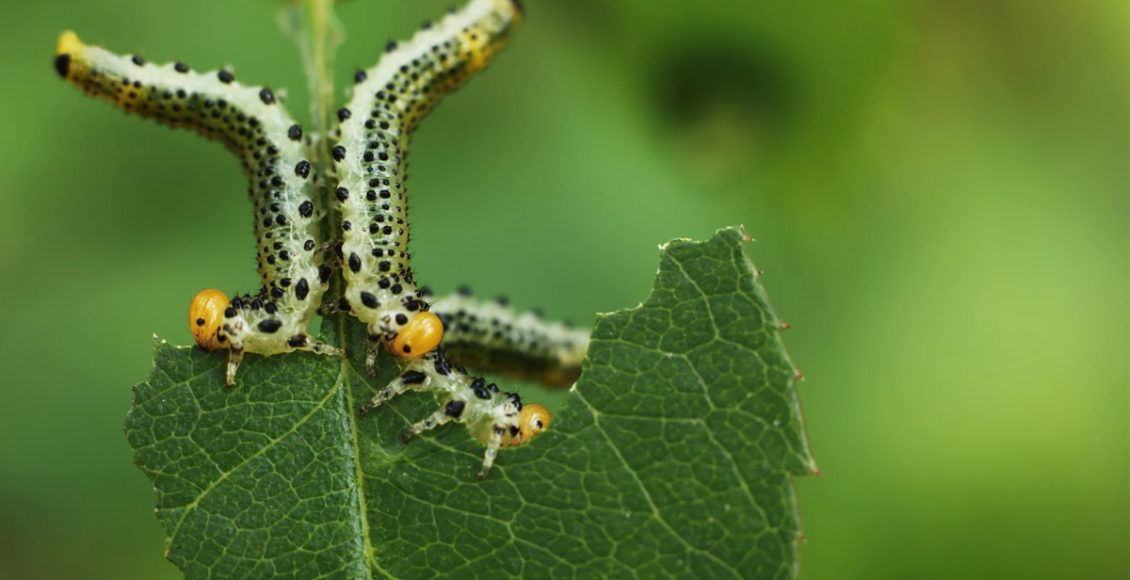
Biological control paving way for a sustainable future of agri-food ecosystem
The successful future of agriculture in India depends on an environmental-friendly  method of preventing pests, increasing harvest, and replenishing soil nutrients. Biological Control of crop pests has gained popularity amongst the key stakeholders in agri-food systems globally. In Biocontrol, one organism controls the other with the goal of pest elimination for disease-free crop production in an environmental-friendly setting leading to higher yields and improved quality. It is the most natural pest control method in agriculture in which one or a combination of several microorganisms are introduced in the field to eliminate pests. It is also a critical component of integrated pest management. This method boosts crop productivity, improves soil, and water quality in and around the crop cultivation fields. The million-dollar question is whether the biocontrol the future of agriculture in India?
method of preventing pests, increasing harvest, and replenishing soil nutrients. Biological Control of crop pests has gained popularity amongst the key stakeholders in agri-food systems globally. In Biocontrol, one organism controls the other with the goal of pest elimination for disease-free crop production in an environmental-friendly setting leading to higher yields and improved quality. It is the most natural pest control method in agriculture in which one or a combination of several microorganisms are introduced in the field to eliminate pests. It is also a critical component of integrated pest management. This method boosts crop productivity, improves soil, and water quality in and around the crop cultivation fields. The million-dollar question is whether the biocontrol the future of agriculture in India?
Read on to know. Before we deep dive, let us look at how Biocontrol came into the picture and captured the imagination of stakeholders in agro-food systems globally!
A Brief History
Biocontrol has been under practice for centuries. The first use of an insect species to control another insect species comes from “nanfang Caomu Zhuang” in 304 AD, when people used insects to protect citrus fruits without which they could undergo heavy damage. Another instance of biocontrol was the ancient practice of rotating the crops every second or third year. The crop rotation allowed the pest or pathogens present in the soil to decrease because of the predatory, competitive, and other antagonistic effects imposed by associated flora and fauna.
Despite its use in agriculture for centuries, the technique is still in its infancy and tremendous amount of efforts are being made globally to develop and introduce better biological products. Half of the farmers are still unaware of its existence continue to rely on chemical methods of eliminating pests.
How Biocontrol works
The agents of biocontrol include- natural enemies (such as microbes, plant extracts, algal extracts etc.), that help immunize plants or animals to protect themselves. Some of the approaches to biocontrol are:
- A classical approach involving the regulation of pest population through other microorganisms,
- Exclusionary method of protection in which a living layer of protecting microorganisms is plastered on the plants and animals to deter infection, and
- Resistance and immunization approach or systems of self-defence.
The success of biocontrol method depends upon knowledge of biological interactions with the ecosystem, cellular organisms, and molecular levels. The complexities of biocontrol make it unpopular in comparison with cultural or chemical prevention methods. However, this method is more stable, effective, and long-lasting. Unlike other methods, biocontrol has a clear past, with no evidence of any negative effects on the environment. Unique Factors contributing towards the success of biocontrol include:
- new tools of recombinant DNA technology,
- mathematical modelling,
- computer simulation technologies to hasten product development,
- A combination of compatible microorganism for biocontrol
- improved germplasm breeding and,
- Field testing.
How Biocontrol can change the dimension of Indian Agriculture
Till now, we’ve discussed the importance of Biocontrol in agriculture. But, what about the role of Biocontrol on the future prospects of Indian agriculture? What importance does Biocontrol have when it comes to agricultural produce in India? With a massive 1.3 billion population and growing, we must produce double of what we produce today to survive by 2050. However, the excessive use of chemicals has increased the toxic contents in soil, water, and atmosphere. If this continues, there will be a mass shortage in food production that will be compounded by climatic changes. The changing consumer behaviour where they prefer healthy foods with no chemical residue and more healthy nutrients. Acknowledging this, the government has shifted towards eco-friendly pesticides prevention methods, given their low toxic nature and lower residues. The biocontrol method of pest prevention must be integrated with other control measures to be effective. Moreover, some other reasons that have contributed towards the slower progress of biocontrol in the country includes low consistency on its effectiveness and lack of research, biotech firms and awareness amongst the farmers & Indian audience about biocontrol. Additionally, the large number of spurious products in the market have also dented the confidence of farmers towards biocontrol.
Role of AlgaEnergy in Biocontrol development in India
AlgaEnergy is a world leader in Biotechnology committed to R&D. We innovate advanced technology for various industries. Our unique raw material, Microalgae is beneficial across various sectors such as agriculture, nutrition, cosmetics, and aquaculture. After success with Microalgae, AlgaEnergy is soon coming up with Biocontrol invention with the use of innovative technology and international collaborations. Committed to intense R&D, research & requirements, Algaenergy aims to assist millions of farmers across the globe with effective Biocontrol solutions. We aim to meet the growing demand with sound, bio-based pest management solutions.
Just how electric, non-polluting vehicles are replacing the harmful fossil fuel-powered vehicles, Biocontrol too will balance the chemical method of pest prevention. Biocontrol is one of the most popular methods to meet India’s agricultural requirements in the future. It’s an economical and more environmentally friendly approach to meet our agricultural needs. However, a lot of work, research and time is needed to make Biocontrol the first preference of every Indian farmer. With the right investment in R&D, efficient production and policy-level support, the needs can be met efficiently. Biocontrol is the current need of the hour, not only for the soil but for humans as well as the environment!.
 Grow Beyond
Grow Beyond 

